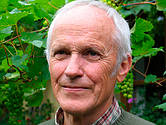Climate change already affecting Europeans says WWF “Climate Witnesses”
WWF news release
November 23, 2005
Brussels, Belgium – Five WWF “Climate Witnesses” from the UK, Germany, Italy and Spain descended on Brussels to tell their personal stories of how climate change is affecting their lives and businesses. Snow disappearing in Scotland, fewer bees in Italy, crop losses in Spain, forests on the decline in Germany and sea levels rising off the coast of England are dangerous signs of climate change in Europe.
One week before the beginning of the 11th Conference of the Parties to the UN Climate Change Convention and the first Meeting of the Parties to the Kyoto Protocol (COP/MOP), WWF’s Climate Witnesses highlighted these impacts and asked the EU to drastically cut greenhouse gas emissions in Europe.
“In order to be credible at a global level, the EU should first of all meet its commitments under the Kyoto Protocol and reduce greenhouse gas emissions by 8 per cent by 2012 domestically. This is a goal that can be achieved with a stronger Emissions Trading Scheme which would provide incentives to drive the power sector the world’s single largest CO2 polluter towards a cleaner future as well as deeper CO2 cuts after 2012”, said Stephan Singer, Head of the European Climate and Energy Policy Unit at WWF.
“The citizens expect to see real action from the EU because climate change is already a reality in their daily life”.
Georg Sperber, a 72 year-old forester from Germany, explained the dramatic consequences of higher temperatures for spruce trees in the “Steigerwald” forest in Bavaria. Such trees are the backbone of the German forest industry, but they are suffering more and more from attacks of bark beetle populations which are putting their future at risk.
 Portrait of the German Climate Witness Georg Sperber (72) from Bavaria, Germany © WWF-Germany/Ulrike Hellmessen |
Cassian Garbett, 45, the last permanent resident in one of the five coastguard cottages near Seaford, on the South coast of England, has witnessed rising sea levels and greater frequency of storms. Extreme weather has destroyed sea defences built up by the army during the war.
Alan Stewart, 49, runs a sled dog centre in Scotland but his business is facing the threat of increasing temperatures and disappearing snow. This has also resulted in Siberian huskies moulting in the middle of the winter.
Giuseppe Miranti, a 26-year old beekeeper from Italy, said that because of warmer temperatures, flowers are blooming at unusual times, which makes the bees change their behaviour and reduce their activity. Stronger attacks from parasites also undermine the production of honey.
José Luis Oliveros Zafra, a 46-year old Spanish farmer, lost 100 per cent of his leguminous and cereal crops because of this summers’ devastating droughts. As the weather becomes less predictable, agriculture in Spain becomes more difficult.
At a press conference hosted by the European Commission, EU Environment Commissioner Stavros Dimas welcomed this campaign by WWF. Mr. Dimas said:
“The personal experiences of these climate witnesses’ is a striking reminder that climate change is not just a potential problem somewhere far in the future. It is indeed happening here and now and is affecting the daily lives of our citizens. It is for this reason that the European Union must continue to lead the global fight against climate change. The European climate change programme features over 30 efficient measures to reduce greenhouse gas emissions to help meet our Kyoto target. These measures include the world’s first international scheme for trading in greenhouse gas emissions. But we will also work hard to convince our international partners of the need for speedy and effective action. In this context, I look forward to the Montreal talks starting next week where. I will be pushing for international negotiations to start on drawing up a global climate regime for the period after 2012, when the Kyoto targets will expire”.
You can download audio versions of witness comments from the WWF web site at No honey left in European “buffets” because of climate change.
NOTES:
The first meeting of the Parties to the Kyoto Protocol in conjunction with the 11th session of the Conference of the Parties to the UN Climate Change Convention will take place in Montreal from 28 November to 9 December 2005. It is the first COP since the entry into force of the Kyoto Protocol. WWF asks that Governments start negotiations to set commitments for further reducing greenhouse gas emissions after 2012.
The EU Emissions Trading Scheme (ETS) is the world’s most important international policy to drive fundamental reform in the power sector. It covers 46 per cent of Europe’s CO2 emissions – 15.5 per cent of global emissions from the combustion of carbon. Having entered into force on 1st January 2005, the ETS is now about to enter its second phase. Negotiations for national caps for the period 2008-2012 are starting now. WWF wants the ETS to be strengthened in its second phase through stricter CO2 caps in all national allocation plans. Also, no more than 90 per cent of allowances should be freely allocated by governments, and the remaining 10 per cent should be purchased by companies through an auctioning system.
WWF has set up the Climate Witness programme to give a voice to people and communities affected by climate change. Other than Europe, WWF’s Climate Witnesses are in Fiji, Australia, India, Nepal and Argentina.
This article is a modified press release from WWF.